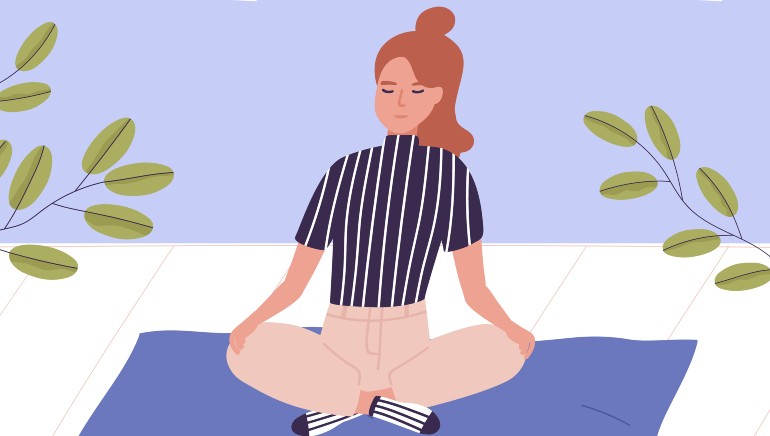
The pandemic has resulted in various health issues that affect us both physically and mentally. When it comes to our mental health, stress is truly the issue that is plaguing the majority of people all across the world.
Stress is the element that throws our nervous system out of balance and adversely affects the functioning of various systems in the body. When you’re a person who has survived coronavirus, it only gets amplified.
Overthinking, or the fear of certain situations leads to anxiety, palpitations and impulsivity in an individual. Hence, it is important to manage it before it starts affecting our daily life.
Also, read: 7 sneaky but harmful ways in which covid-19 stress is affecting your body
Here are 5 very simple but useful tips according to Ayurveda which will help you fight these symptoms of stress:
A well-planned daily routine is absolutely necessary to bring positive changes in the body, mind and consciousness. It helps to regularize a person’s biological clock by aiding digestion, absorption and assimilation. At the mental level, it aids self-confidence, discipline and peace. Waking up before the sun rises is good because nature brings peace of mind and freshness to the senses. Right after getting out of bed, look at your palms for a few seconds before gently moving them over your face, chest and down to the waist. This cleans the aura, helps to diminish bad thoughts and brings positivity to the mind.
Balance your system by indulging yourself in relaxation techniques such as deep breathing, meditation and pranayama. Meditation helps in improving concentration and leads to the development of a sound mind. It is very important to meditate in the morning and evening for at least 15 minutes.

Meditating while sitting in a peaceful environment trains your mind to build attention and awareness. It helps achieve a mentally clear and emotionally calm state of mind. Various pranayama techniques help in attaining control over our breathing. Thus, it reduces anxiety and palpitations. Pranayama also increases mindfulness and improves the quality of sleep. What’s more, it also enhances cognitive performance.
When consumed in an adequate amount and in a proper way, food works like a medicine for our body. So, you should always consume food in a way that provides you with the greatest benefit. Choosing foods according to your constitution, paying attention to what is being eaten and eating only as much as is required by the body are some of the Ayurvedic practices that can enhance your overall well-being. Try to eat food that is freshly cooked, warm and contains seasonal ingredients. Do not overeat.
Similarly, avoid consuming food without hunger. Choose light, satvik food in the quantity that is required without going overboard. Focus on eating seasonal foods, fruits, vegetables, dairy products, nuts, seeds, and oils. Avoid foods that are too spicy, oily or contain preservatives. Try to reduce sugar and salt intake. Junk food and refined sugar are low in nutritional value and high in calories, resulting in a feeling of sluggishness. Consuming foods like ginger, turmeric, and black pepper will definitely aid in improving overall health and reduce stress levels.
Select Topics of your interest and let us customize your feed.
PERSONALISE NOW
A period of quiet time before bed allows you to step far away from worries. Taking time out to relax before bed is important because it ensures you sleep well and aids the reduction of stress. Taking a warm shower or bath can be extremely relaxing. Doing some light stretching before bedtime helps in relieving the stress. Avoid doing anything stimulating or stressful half an hour before bedtime. Go for a light body massage to help you relax your muscles and mind. It will definitely help in inducing sound sleep and reducing anxiety. Supplementing the body with herbs like ashwagandha, brahmi, and cardamom at night will help induce sleep and diminishing stress.
You can learn to control and change the thought patterns that produce stress. What we tell ourselves often determines how we feel and the way we manage rising stress levels. Try to avoid bringing negative thoughts and focus on being positive. Know your limits and stick to them. Don’t burden yourself with expectations. Learn to say ‘no’ and distinguish between ‘should’ and ‘must’. Saying ‘no is never the end of the world. It should definitely be said if something is too much to handle. It is better to do something willingly than doing something that we are not happy with. It reflects in the results.
You will have to practice these things on a daily basis to combat stress. Remember, they won’t just help you through the pandemic but also contribute to your sense of routine throughout your life.